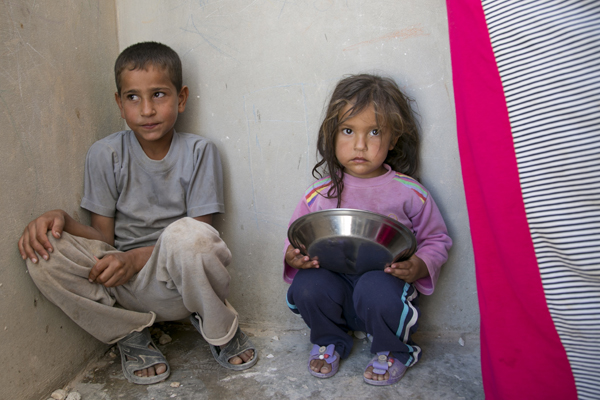WFP Forced To Make Deeper Cuts In Food Assistance For Syrian Refugees Due To Lack Of Funding

“Just when we thought things couldn’t get worse, we are forced yet again to make yet more cuts,” said Muhannad Hadi, WFP Regional Director for the Middle East, North Africa, Central Asia and Eastern Europe. “Refugees were already struggling to cope with what little we could provide.”
In July, WFP will halve the value of food vouchers, or “e-cards,” in Lebanon, providing only US$13.50 per person per month. In Jordan, WFP fears that if it does not receive immediate funding by August, it will have to suspend all assistance to Syrian refugees living outside camps, leaving some 440,000 people with no food.
WFP is funded entirely by contributions from governments, companies and private individuals. But its regional refugee operation is currently 81 percent underfunded and immediately requires US$139 million to continue helping desperate refugees in Jordan, Lebanon, Egypt, Turkey and Iraq through September.
Since the beginning of the year, WFP has made concerted efforts to prioritize available funds to ensure continued assistance to families most in need. Limited resources, however, forced WFP already to reduce the assistance to 1.6 million Syrian refugees in the five countries.
The reductions strike at a time when Syrian refugees are spending yet another Ramadan away from their homes and loved ones; the fifth since the start of the conflict in Syria.
“We are extremely concerned about the impact these cuts will have on refugees and the countries that host them,” Hadi added. “Families are taking extreme measures to cope such as pulling their children out of school, skipping meals and getting into debt to survive. The long-term effects of this could be devastating.”
Since the Syria conflict erupted in 2011, WFP succeeded, despite fighting and problems of access, in meeting the food needs of millions of displaced people inside Syria and close to 2 million refugees in the neighbouring countries of Lebanon, Jordan, Turkey, Iraq and Egypt.
In 2014, WFP globally received US$5.38 billion in contributions – 27 percent higher than in 2013. This was in response to an unprecedented number of emergencies in places such as Syria, Iraq, South Sudan, and the West African countries affected by Ebola. However needs are continuing to rise worldwide, outpacing the available funding.
# # #
WFP is the world's largest humanitarian agency fighting hunger worldwide, delivering food assistance in emergencies and working with communities to improve nutrition and build resilience. Each year, WFP assists some 80 million people in around 75 countries.
Follow us on Twitter @wfp_media & @wfp_mena
For more information on broadcast quality video footage, please contact: marco.frattini@wfp.org
For more information please contact (email address: firstname.lastname@wfp.org):
Abeer Etefa, WFP/Cairo, Tel. +2010 66634352
Dina El-Kassaby, WFP/Cairo, Tel. +2010 15218882
Joelle Eid, WFP/Amman, Mob. +962 79727 9403
Jane Howard, WFP/Rome, Tel. +39 06 65132321, Mob. +39 346 7600521
Elisabeth Byrs, WFP/Geneva, Tel. +41 22 917 8564, Mob. +41 79 473 4570
Gregory Barrow, WFP/London, Tel. +44 20 72409001, Mob. +44 7968 008474
Steve Taravella, WFP/Washington DC, Tel. +1 202 653 1149, Mob. +1 202 770 5993
